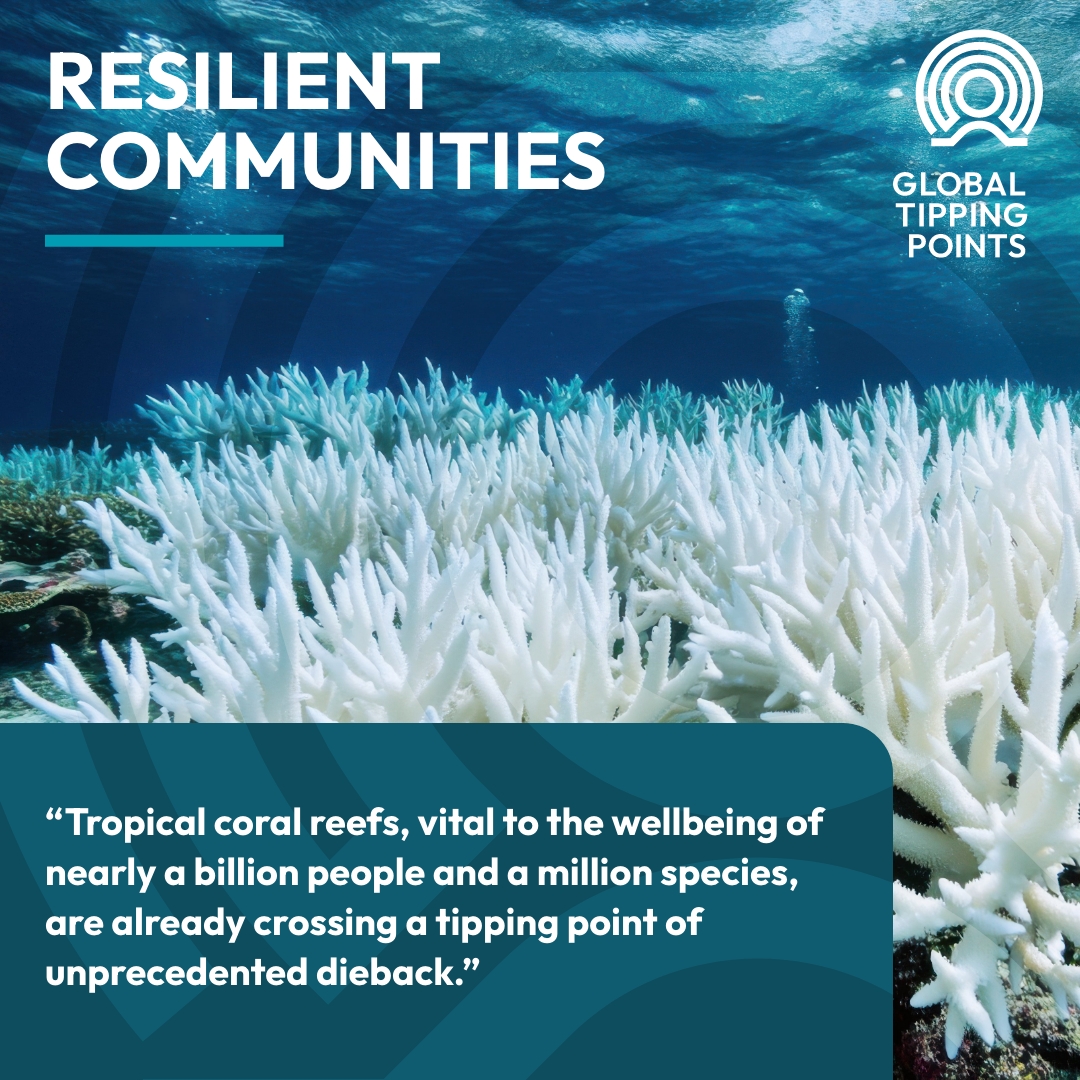The planet is crossing climate tipping points, according to a new global report

The world has entered a new reality. Global warming will soon exceed 1.5°C. This places humanity in the danger zone, where multiple climate tipping points pose catastrophic risks to billions of people. Warm-water coral reefs are crossing their thermal tipping point and experiencing unprecedented loss, threatening the livelihoods of hundreds of millions who depend on them. Polar ice sheets are approaching tipping points, committing the world to several meters of irreversible sea-level rise that will affect hundreds of millions of people.
These are the findings of the new Global Tipping Points 2025 report, the result of a broad collaboration among 160 authors from 87 institutions, including the Doñana Biological Station (EBD-CSIC), with authorship by Dr. José A. Sanabria-Fernández, Postdoctoral Researcher funded by the Junta de Andalucía.
The report warns that each additional fraction of warming increases the risk of triggering even more harmful tipping points. Among these risks is the collapse of the Atlantic Meridional Overturning Circulation (AMOC), which would radically undermine global food and water security and plunge Northern Europe into severe and prolonged winters. In addition to climate change and deforestation, the Amazon faces the risk of widespread loss even with a global temperature increase below 2°C, potentially causing incalculable damage to biodiversity and affecting over 100 million people who depend on the forest.
"These tipping points are interconnected, with mostly destabilizing interactions," explains Jose A. Sanabria-Fernández. "Activating one increases the likelihood of triggering others, generating a cascade of impacts that would spread through the ecological and social systems essential for humanity. This could lead to a catastrophic and irreversible scenario for humankind."
The Inter-American Court of Human Rights recognizes the right of people to a safe climate; therefore, preventing irreversible damage to the climate system is a legal imperative. To achieve this, global greenhouse gas emissions must be cut in half by 2030 (compared to 2010 levels) and reach net zero by 2050. This requires unprecedented acceleration in decarbonization, rapid mitigation of methane and other short-lived climate pollutants, and swift scaling of sustainable carbon removal from the atmosphere.
"However, if we wait until we have crossed the tipping points before acting, it will be too late," warns Jose A. Sanabria-Fernández. "The only credible risk management strategy is to act proactively. But the window to prevent these catastrophic tipping points is closing rapidly."
To avoid reaching these negative tipping points, the report concludes that it is necessary to activate positive tipping points that generate self-reinforcing changes in technologies and behaviors, driving the transition to net-zero emissions through the use of clean technologies. Promoting these positive tipping points can enhance their interaction and mutual reinforcement.
Full report: https://global-tipping-points.org/